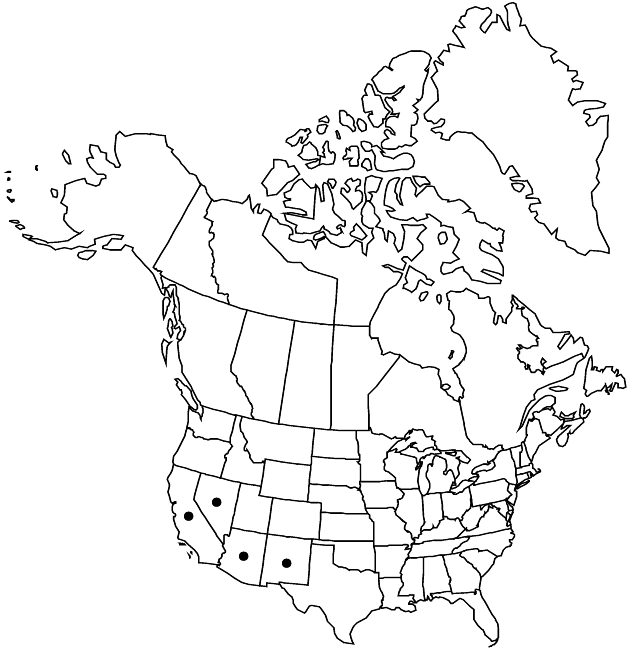Ericameria cuneata var. spathulata
Univ. Calif. Publ. Bot. 3: 52. 1907.
Basionym: Bigelowia spathulata A. Gray Proc. Amer. Acad. Arts 11: 74. 1876 (as Bigelovia)
Revision as of 20:06, 5 November 2020 by imported>Volume Importer
Leaves petiolate; blades spatulate, largest (9–)12–25 × 4–16 mm, apices obtuse to retuse. Heads mostly discoid, 8–11 × 5–7 mm. Phyllary midnerves usually evident throughout, subapical resin ducts sometimes present, thickened and expanded apically, subapical herbaceous patches rarely evident. Disc florets 7–15. 2n = 18.
Phenology: Flowering late summer–fall.
Habitat: Rocky hillsides, canyon walls, rocky outwash slopes
Elevation: 700–1900 m
Distribution

Ariz., Calif., Nev., N.Mex., Mexico (Baja California).
Discussion
Selected References
None.
Lower Taxa
None.